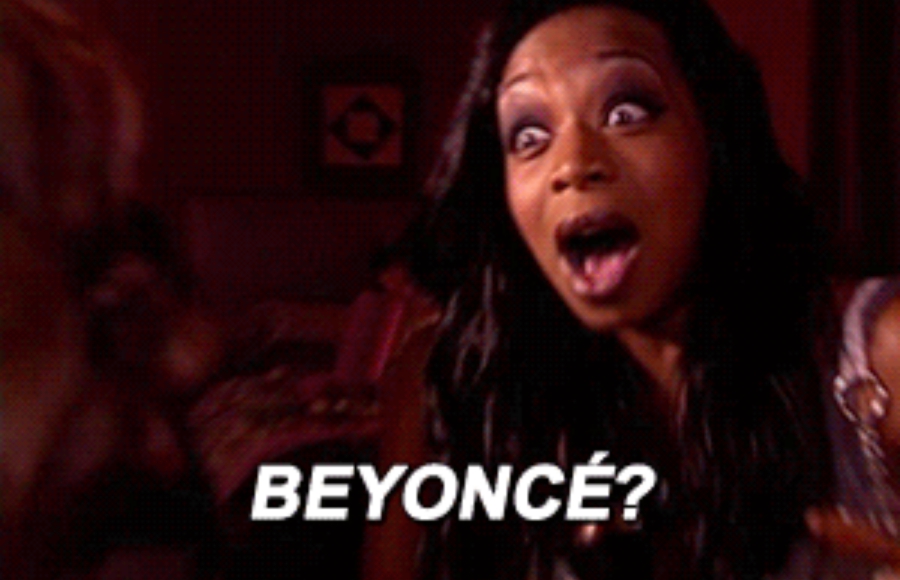Though many memes’ origin stories are easily forgotten, there is surely no internet reaction joke as easily attributable to its source as those featuring Tiffany Pollard. Better known by her on-screen moniker “New York”, Tiffany’s catchphrases, featured gifs and images have become universally present wherever internet users seek to convey humour, disbelief, or pretty much any other emotion.
First appearing to audiences in 2006’s Flavor of Love, the reality TV idol’s digital popularity is matched by few within the genre. In tweets, DMs and Tumblr dashboards across the globe, you can find images of her pensively smoking on a sunlit balcony, wielding a small kitchen knife with a narrow-eyed smirk, or sitting stoic atop a bed in dark sunglasses, hands clasped as if deep in thought. Tiffany’s images are frankly everywhere, and beloved by those who were too young to know what a “Flava Flav” even is.
“I first started seeing her memes on Twitter a few years ago,” says 24-year-old Nyomi. “Her memes are hilarious, and she was so ahead of her time in terms of being a reality TV star.” Therein lies Tiffany’s enduring cultural appeal; borne from her uncanny ability to provide comedic value even when performing the most mundane of tasks, and her knack for reeling off sharp catchphrases now common in our internet-lingo. Some of our most prolific online sayings originated from her appearances: “Another contestant in the dating show complimented herself by saying she looks like Beyoncé,” recalls Furqan, a 28-year-old fan describing his favourite meme. “And Tiffany yelled ‘BEYONCÉ?’ while laughing. I mean, people have used that meme every time Beyoncé does a surprise release ever since.”
However, despite endless viral clips and modern cyber-fame, many fail to look at Tiffany’s popularity in context and fail to really consider the significance of her reaching and maintaining such heights of online stardom. Casting back to a time when her sharp tongue, biting commentary and comical quotes were less well-received by some audiences, Tiffany’s story tells the tale of a resourceful, talented TV hopeful winning against an industry hostile towards Black female performers.

Even her start on the show wasn’t necessarily the most ideal launching pad for any burgeoning reality TV star. Flavour of Love has received extensive criticism for its portrayal of its female contestants and for allegedly exploiting derogatory stereotypes about Black women. Writers like LaToya Jefferson James note how casting directors deliberately sourced women involved in the sex industry as contestants, only to then use their backgrounds to stereotype them as wild, wanton troublemakers desperate to seduce the leading man. The crude nicknames, harsh editing and problematic framing did little to add positive imagery, creating an end result characterising participants as lascivious girls-gone-wild. “I feel like ‘Flavor of Love’ did the worst job of showing who I really am,” says former contestant Jennifer Toof, who appeared on season two of the show. “It focused on my drinking and the ‘shocking’ elimination ceremony, while failing to capture my real personality at all.”
And as the show’s breakout star, Tiffany found herself at the forefront of particularly scathing cultural critiques. In a string of rather racially-loaded depictions, Tiffany was derided as “hair-weave-and-insult-slinging,” a “cuckoo narcissist” and criticised for charges of amoral on-screen character. Audience critique oscillated between acknowledging her entertainment value to debating whether her appearance, and the show itself, would bring the Black community into disregard. This combined, our modern meme-queen received her start fighting against both the exploitative nature of reality TV and intense moral panic aroused by her feature.
So what do you do when the media and critics give you racist, sexist lemons? You make reality TV lemonade. Not one to tone down a performance when met with bad reception, Tiffany reveals how she rejected criticisms in dealing with public opinion. “I think television used to be very stuffy, very, ‘I have to look perfect, be perfect and have the perfect answer’,” she told Refinery29. “I think when I stepped on the scene, I released a lot of that type of tension. It was like, You know what? Forget that.”
Samuel, 23, suggests that the visceral reaction to Tiffany speaks to her emergence at a time when brash, zany reality shows were still finding their feet, and were less common than the Jersey Shores and TOWIEs of today. “It’s a reflection of the era in the way they received her,” the fan says. “If that same series had aired today I don’t think people would have been as shocked.”
In addition to this, various critics have evaluated the blowback received by Black women whose public behaviour is seen as damaging to conceptions of upward-mobility for the Black community, a discussion that toys with the concept of respectability politics. Writer Therí A. Pickens details the devices of Black female performers who challenge these politics by using vulgarity, humour and provocation when on television, noting this as a “particular performance strategy of Black women reality-TV stars”. It would seem that as a performer, Tiffany understood and lived this strategy; understanding the cravings producers and audiences held for larger-than-life personalities like her own, she upped the ante as the villainous, Flav-obsessed “head bitch in charge” in efforts to market her talent and capture the attention of the show.

Her ingenious quotes, now-etched into the fabric of social media conversation, were more than spontaneous comments to arouse drama, and rather the creation of a brilliant comedic mind. Tiffany’s mother previously alluded to her skill in character development and the creation of a specific TV identity: “When you see New York, that’s her character… That’s a character role.” In assuming the identity of “New York” with a performance that blurred the lines between an authentic personality and media invention, Tiffany created a persona striking enough to transcend the critiques of finger-wagging complainants and efforts of ill-minded production teams trading in stereotypes to make their entertainment. For that, she’s been arguably able to take more control of her depiction than others on the show and created a long-lasting media presence relevant to this day.
In 2020, Black women in the media who operate outside of the narrow margins set for appropriate behaviour remain disregarded as uncouth, indecent and vulgar – irrespective of skill. “As Black women we are put in boxes, and people do expect us to act a certain way” says Nyomi. “But that’s what I love about Tiffany – she was unapologetically herself.” Tiffany was a trailblazer amongst others in recognising the limitations of such criticism, and a reminder that Black women should not have to be limited to flattening, universal characterisations of what constitutes “good behaviour”.
In celebrating Tiffany Pollard, we should think of her as far more than a social media star; rather, she’s a reality TV genius who’s beat the odds to outdo the genre at its own racist, sexist game.


